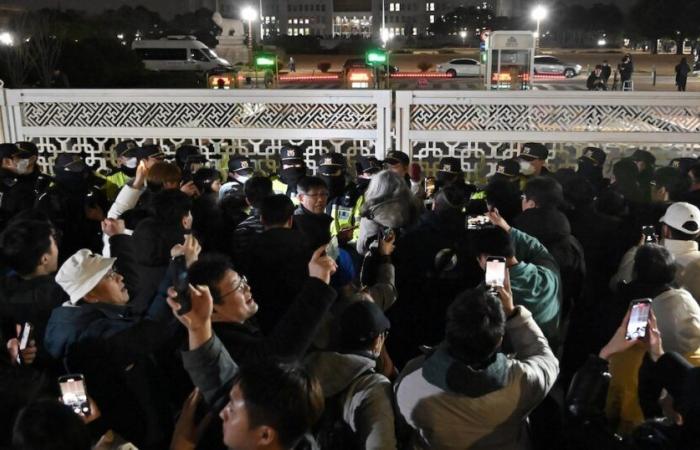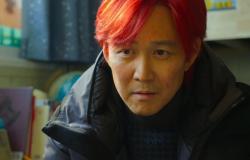There are softer ways to commit political suicide. South Korean conservative President Yoon Suk-yeol did so in a spectacular way, to say the least. His attempted coup, by declaring martial law on Tuesday, December 3, was swept aside by the National Assembly a few hours later. The deputies, including from his camp, rejected his decision, testifying in passing to the solidity of South Korean democracy and the rejection of any idea of a return to the dictatorships in place until 1987. The demonstrations organized in the stride and the impeachment project tabled in the National Assembly could well get the better of a president elected in 2022 but who has never fully convinced.
Since coming to power, the former prosecutor has struggled to impose his views. The fault lies with an Assembly dominated by the democratic opposition but also with its “bulldozer” style. The standoff with parliamentarians, hardened after the defeat of his party, the PPP (Popular Power Party) in the April legislative elections, has only strengthened the antagonism, with the president not hesitating to qualify the votes criticism of “pro-North Korean and anti-state forces”. This is also the argument he used to justify his martial law.
READ ALSO: In South Korea, the return of Donald Trump fuels the desire for nuclear weapons
Accusations of survey trafficking
Tensions were also fueled by multiple scandals involving both him and his wife, Kim Keon-hee. The latter had to explain herself in June to prosecutors about the donation of a Dior bag by a pastor and about a case of stock market manipulation.
For almost two months, the presidential couple has also been facing accusations of poll manipulation. Now in detention, the sulphurous Myung Tae-kyung distills in the press messages exchanged with the leader and his wife, to whom he was once close. This intriguer would have tampered with opinion surveys to allow Yoon Suk-yeol's victory in the PPP primary for the 2022 presidential election. The head of state brushed aside all the criticisms and accusations, calling them “fake news “.
These tensions were accompanied by an authoritarian drift. In March, the Varieties of Democracy (V-dem) institute at the Swedish University of Gothenburg deplored “a regression of democracy” in South Korea, due in particular to multiple legal actions taken against opponents. South Korea plunged from 47th to 62nd place in Reporters Without Borders' 2024 press freedom rankings.
READ ALSO: South Korea: the “Marie-Antoinette” who shakes power
The tightening of the administration has also resulted in controversial appointments, such as that in September of Kim Yong-hyun, a retired general, as defense minister. The democratic opposition saw this as a desire by the Yoon administration to strengthen its control over the army, or even to prepare for the establishment of martial law. A feeling reinforced by the placement, in key positions in the army, of people close to the president.
Dropped by his camp?
This context provoked protests in the opposition. On November 30, a massive rally in the heart of Seoul called for Yoon's resignation. The demonstrators brandished candles, as a reminder of the “candle revolution” which led to the impeachment, in 2016, of the conservative president, Park Geun-hye (2013-2016).
The martial law imbroglio gives new impetus to criticism of Yoon, whose top aides, starting with his chief of staff, Chung Jin-suk, and his national security adviser, Shin Won-sik, have presented their resignation after the failure of the presidential initiative. The powerful Korean Confederation of Trade Unions (KCTU) has launched an indefinite strike “in support of the people in their fight for the immediate resignation of the president.” In the National Assembly, a motion for dismissal was tabled. To be adopted, two thirds of the deputies, or 200, must adopt it. The opposition has only 175 seats but could benefit from the support of the PPP, whose chairman, Han Dong-hoon, said the president was “wrong” to declare martial law.
.
- -





